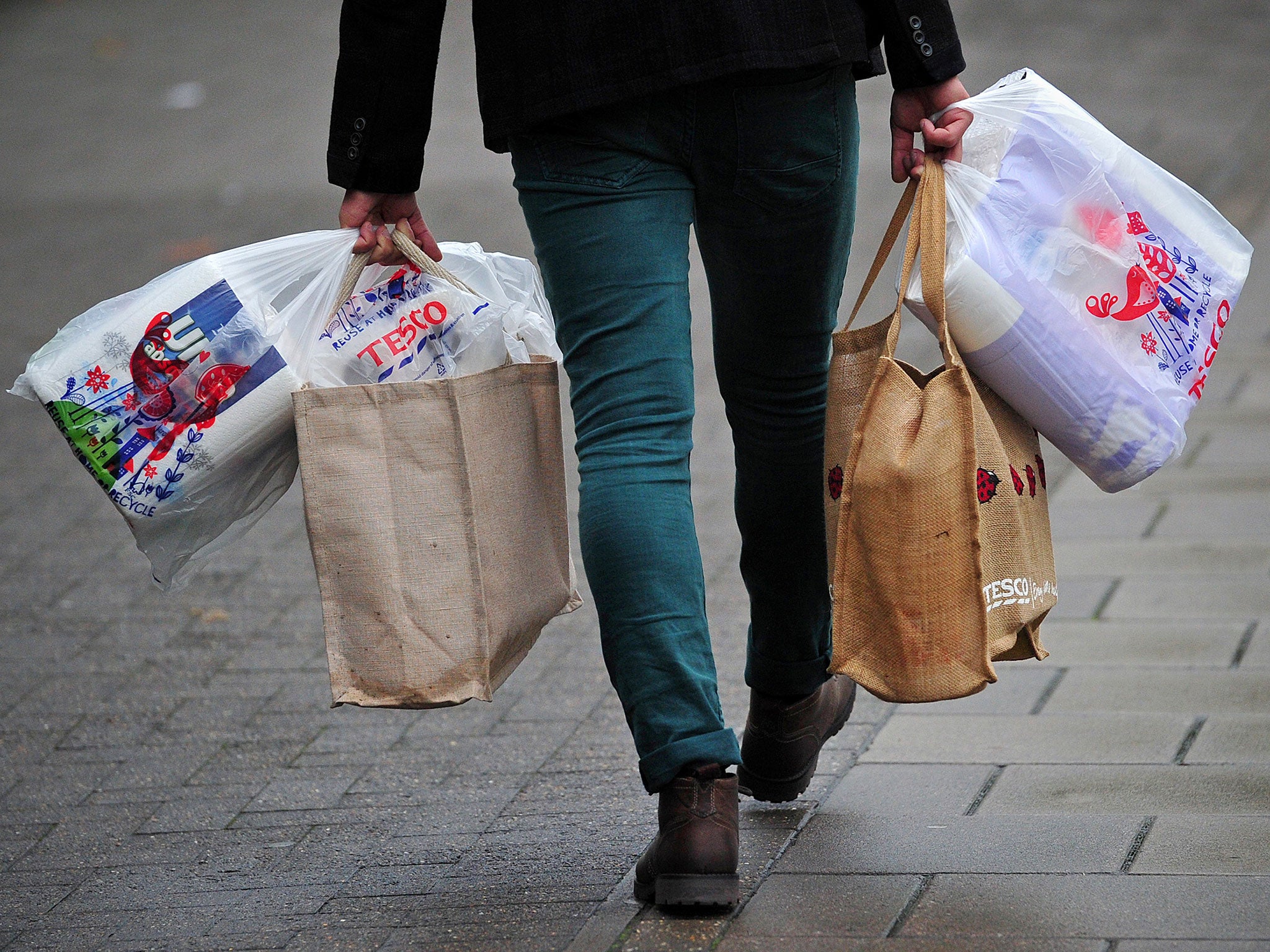Supermarket workers' minimum wage pay topped up by £11bn in benefits, says Citizens UK
Bosses of five million employees are being 'subsidised' by the taxpayer

Your support helps us to tell the story
From reproductive rights to climate change to Big Tech, The Independent is on the ground when the story is developing. Whether it's investigating the financials of Elon Musk's pro-Trump PAC or producing our latest documentary, 'The A Word', which shines a light on the American women fighting for reproductive rights, we know how important it is to parse out the facts from the messaging.
At such a critical moment in US history, we need reporters on the ground. Your donation allows us to keep sending journalists to speak to both sides of the story.
The Independent is trusted by Americans across the entire political spectrum. And unlike many other quality news outlets, we choose not to lock Americans out of our reporting and analysis with paywalls. We believe quality journalism should be available to everyone, paid for by those who can afford it.
Your support makes all the difference.Supermarket employees do not get paid enough to live on and national minimum wage earnings are topped up by in-work benefits that total £11billion a year, a charity said.
According to the Citizens UK, supermarket bosses who employ five million people are being “subsidised” by the taxpayer as wages they pay do not make ends meet – the BBC reports.
The national minimum wage currently stands at £6.50 per hour for people over the age of 21.
Citizens UK set up the Living Wage Foundation and campaigners have called for the living wage to be used as the minimum instead. It is paid at £7.85 per hour, £9.15 for those employed in London, by companies who agree to do so.
Most people who earn less than the living wage work in the retail sector, the charity also claimed, however the British Retail Consortium said that most supermarkets paid around £8.40 per hour on average when “extra earnings” are factored in.
Retailers have come under fire after investigations by The Independent revealed that not a single high street retail chain has guaranteed staff the living wage.
Nearly 80 per cent of 1,813 retail staff polled by the Union of Shop, Distributive and Allied Workers say that they are financially worse off than they were five years ago. Only 5 per cent said they are better off in comparison.
This is despite the tax threshold being raised to £10,600 per year before the lowest-paid have to start paying to the Treasury. But in-work benefits remain stagnant. The rising cost of living is also a big strain on consumers.
A supermarket worker interviewed by the Mirror said that although she was paid a wage for working at a supermarket check-out, she had to use a food bank more than once as she has been struggling financially, and often goes without.
She cannot even afford to buy the food stocked at her workplace, even with staff discount.

“I was totally embarrassed,” she said about her food bank experiences. “And angry. My wages should be enough to feed me.”
John Hannett, Usdaw General Secretary, criticised the government after the Budget announcement last month for freezing in-work benefits.
He had said: “With the economy growing and unemployment falling, it is time for workers to feel the benefit in their pay packets.”
“Working people and their families are still suffering. The Government claims to have helped the lowest-paid by increasing the income tax threshold. That simply isn’t true, because the lowest-paid were already under the tax threshold and rely on tax credits to provide for their family.
“Under this Government, Working Tax Credit is worth around £500 a year less because it has been frozen for three years and capped at a 1% increase this year,” he added.
Join our commenting forum
Join thought-provoking conversations, follow other Independent readers and see their replies
Comments